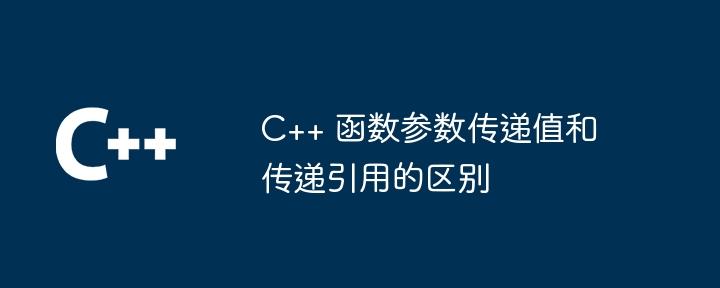
C There are two ways to pass function parameters: value transfer and reference transfer: Value transfer: Create a copy of the local variable, and modifications to the copy will not affect the original variable. Pass by reference: Directly pass the reference to the original variable, and modifications to the reference variable are reflected in the original variable.

C The difference between passing values and passing references for function parameters
Passing values
When a function parameter is passed by value, a copy of the local variable is created. Changes to this copy do not affect the original variable.
Syntax:
void function(int value);
Pass reference
When function parameters are passed by reference, pass the reference to the original variable directly. , instead of creating a copy. Changes to the reference variable will be reflected in the original variable.
Syntax:
void function(int& value);
Practical case
Consider the following function:
void swap(int& a, int& b) { int temp = a; a = b; b = temp; }
This function is passed by reference Two integers are passed, so when the function swaps the values ofaandb, it also modifies the original variable in the main function.
Usage example:
int main() { int x = 5, y = 10; swap(x, y); // 交换 x 和 y 的值 cout << x << ", " << y << endl; // 输出交换后的值 return 0; }
Output:
10, 5
The above is the detailed content of The difference between passing values and passing references in C++ function parameters. For more information, please follow other related articles on the PHP Chinese website!
 What is the difference between pass by value and pass by reference in java
What is the difference between pass by value and pass by reference in java The eight most commonly used functions in excel
The eight most commonly used functions in excel What are the differences between c++ and c language
What are the differences between c++ and c language Recommended learning order for c++ and python
Recommended learning order for c++ and python Cost-effectiveness analysis of learning python and c++
Cost-effectiveness analysis of learning python and c++ Is c language the same as c++?
Is c language the same as c++? Which is better to learn first, c language or c++?
Which is better to learn first, c language or c++? The difference and connection between c language and c++
The difference and connection between c language and c++



